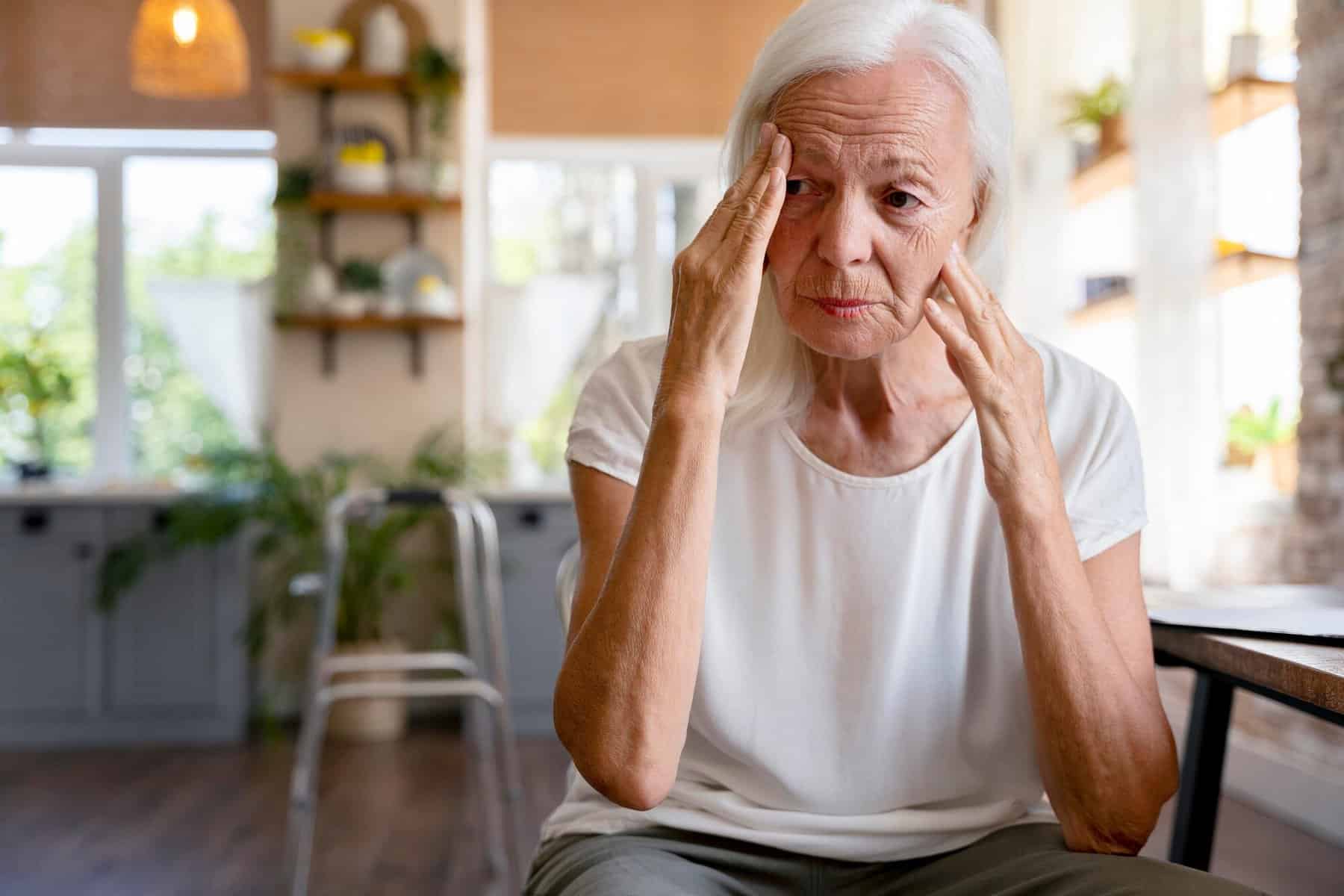
Understanding Stress’s Impact on Aging Process
Stress is a common experience that affects individuals of all ages.
While it is well-known that stress can have detrimental effects on mental and physical well-being, its impact on the aging process is often overlooked.
In this section, we will delve into the role of stress in the aging process and explore how it influences our overall health and well-being.
Stress can play a significant role in accelerating the aging process.
Chronic stress has been linked to a wide range of health issues, including cardiovascular disease, cognitive decline, and weakened immune function.
Additionally, stress can lead to premature aging by causing cellular damage and increasing inflammation in the body.
The concept of stress-induced aging highlights the profound impact stress can have on the body.
Research suggests that prolonged exposure to stress hormones can disrupt cellular processes and shorten telomeres, the protective caps that prevent DNA damage.
This shortening of telomeres is associated with accelerated aging and increased risk of age-related diseases.
Understanding the mechanisms through which stress affects aging is crucial for developing strategies to mitigate its negative effects.
By managing stress effectively, we can promote healthy aging and improve our quality of life as we grow older.
Key Takeaways:
- Stress plays a significant role in the aging process and can accelerate it.
- Chronic stress can lead to a range of health issues and weaken the immune system.
- Stress-induced aging involves cellular damage and inflammation in the body.
- Prolonged exposure to stress hormones can shorten telomeres, contributing to accelerated aging and increased disease risk.
- Managing stress effectively is essential for promoting healthy aging and improving overall well-being.
Effects of Stress on the Aging Process
Stress has long been recognized as a contributing factor to various physical and mental health issues.
In recent years, researchers have also uncovered its significant impact on the aging process.
The effects of stress on aging have gained increasing attention, shedding light on how stress-related factors can accelerate the aging process and potentially lead to premature aging.
One of the aging effects of stress is the disruption of cellular processes.
Chronic stress can promote inflammation and oxidative stress, which are both associated with cellular damage and accelerated aging.
This can manifest in various ways, including the appearance of fine lines, wrinkles, and age spots on the skin.
Stress-related aging can also affect other aspects of overall health.
Chronic stress can weaken the immune system, making individuals more susceptible to illnesses and infections. Additionally, stress can impact cognitive function and increase the risk of age-related cognitive decline.
To combat stress-related aging and maintain healthy aging, stress management is crucial.
Implementing effective stress reduction strategies can help minimize the impact of stress on the body and promote overall well-being.
Engaging in activities such as regular exercise, mindfulness meditation, and social support can help mitigate the negative effects of stress and promote healthy aging.
It is important to prioritize stress reduction in aging to protect both physical and mental health.
By managing stress levels, individuals can potentially slow down the aging process and improve their overall quality of life as they age.
Mechanisms Linking Stress and Aging
Understanding the mechanisms that connect stress and aging is crucial to gaining insights into the impact of stress on the aging process.
Several factors come into play, including the role of the stress response, the influence of immunity, and the effect of oxidative stress. Let’s explore these mechanisms in detail:
The Role of the Stress Response
The stress response, also known as the fight-or-flight response, is the body’s physiological reaction to stressors.
This response involves the activation of the hypothalamic-pituitary-adrenal (HPA) axis and the release of stress hormones such as cortisol.
Chronic stress, however, can lead to dysregulation of the stress response, which may contribute to accelerated aging.
Role of Immunity and Oxidative Stress in the Aging Process
Research suggests that immune system dysfunction and oxidative stress play significant roles in the aging process.
With age, the immune system becomes less efficient in fighting off infections and diseases, leading to increased vulnerability.
Additionally, oxidative stress, which occurs when there is an imbalance between free radicals and antioxidants in the body, can damage cells and DNA, accelerating aging.
Role in Aging Process |
|
|---|---|
| Immunity | Age-related decline in immune function, increased susceptibility to infections and diseases |
| Oxidative Stress | DNA damage, cellular aging, development of age-related diseases |
The Role of Oxidative Stress in the Aging Eye
One specific area where oxidative stress has a significant impact is the aging eye.
Oxidative stress can contribute to the development of age-related eye diseases such as cataracts and age-related macular degeneration, leading to visual impairment and vision loss in older adults.
How Does Stress Affect Aging?
Stress can affect aging through various mechanisms.
Chronic stress can accelerate the shortening of telomeres, which are protective caps at the ends of chromosomes that naturally shorten as cells divide.
Telomere shortening is believed to contribute to cellular aging and the development of age-related diseases.
Is Stress Aging?
While stress does not directly cause aging, chronic stress can accelerate the aging process.
The prolonged activation of the stress response and the associated physiological changes can take a toll on the body over time, leading to various age-related health issues.
How Does Stress Speed Up the Aging Process?
Stress can speed up the aging process through the impact on cellular and molecular mechanisms.
Chronic stress can lead to increased inflammation, impaired immune function, DNA damage, and cellular senescence, all of which contribute to accelerated aging.
The Stress Theory of Aging
The stress theory of aging suggests that cumulative stress throughout life can contribute to the wear and tear of the body, leading to accelerated aging.
This theory highlights the importance of stress management and adopting healthy coping strategies to promote successful aging.
In the next section, we will discuss strategies and techniques for managing stress and promoting healthy aging.
Strategies to Manage Stress for Healthy Aging
As older adults navigate the various challenges that come with aging, managing stress becomes crucial for maintaining overall health and well-being.
Stress can have a significant impact on the aging process, affecting both physical and mental health.
It is important to understand the factors that cause stress in older adults and how it can affect their lives.
One of the key roles of stress in the aging process is its influence on behavior change.
Stress can disrupt routine behaviors and make it difficult for older adults to maintain healthy habits.
It can also hinder the adoption of new behaviors, such as engaging in regular exercise or following a balanced diet.
Recognizing the role of stress in maintaining behavior change is essential for effective stress management.
Furthermore, chronic stress has been linked to accelerated aging. Research suggests that stress can affect the elasticity of the skin, leading to early signs of aging.
Additionally, chronic stress can contribute to various age-related conditions, such as cardiovascular diseases and cognitive decline.
Understanding the impact of stress on the elderly and its potential to accelerate the aging process is crucial for implementing effective stress management strategies.
Fortunately, there are strategies to manage stress and promote healthy aging.
Engaging in stress-reducing activities such as yoga, meditation, or deep breathing exercises can help older adults relax and find inner peace.
Building a strong support system, including friends, family, or support groups, can provide emotional support and reduce feelings of isolation.
Prioritizing self-care and engaging in activities that bring joy and fulfillment can also contribute to stress reduction and overall well-being.
VISIT THE OFFICIAL WEBSITE TO LEARN MORE:
FAQ:
Understanding Stress’s Impact on Aging Process
Q: What is the role of stress in the aging process?
A: Stress can accelerate the aging process by impacting various physiological systems in the body.
It can lead to increased oxidative stress, inflammation, and hormonal changes, all of which contribute to cellular damage and aging.
Q: How does stress affect the body and contribute to premature aging?
A: Stress can have numerous negative effects on the body, including increased blood pressure, impaired immunity, disrupted sleep patterns, and elevated levels of stress hormones like cortisol. Over time, these effects can accelerate the aging process and lead to premature aging.
Q: What are the mechanisms that link stress and aging?
A: The stress response plays a crucial role in the aging process. Chronic stress can activate pathways associated with inflammation and oxidative stress, which can contribute to cellular damage and accelerated aging.
Additionally, immune system dysregulation and the impact of stress on telomeres, the protective caps on our DNA, are also mechanisms linking stress and aging.
Q: How can stress be managed to promote healthy aging?
A:Managing stress is essential for healthy aging. Some strategies include practicing relaxation techniques, engaging in regular physical activity, maintaining social connections, adopting a healthy lifestyle, and seeking support from mental health professionals. These approaches can help reduce stress levels and promote overall well-being in older adults.
Q: Can stress cause early aging?
A: Yes, chronic and prolonged stress can contribute to early aging by accelerating cellular damage, promoting inflammation, and disrupting the body’s natural processes. It is essential to manage stress effectively to promote healthy aging.
Related read: Natural Anxiety Management Tips | No Meds Needed






